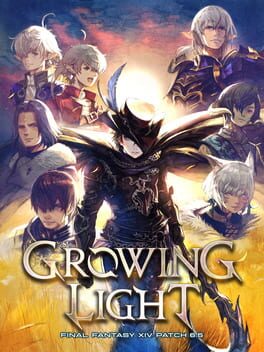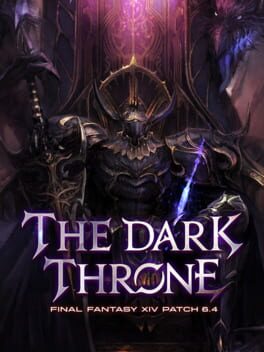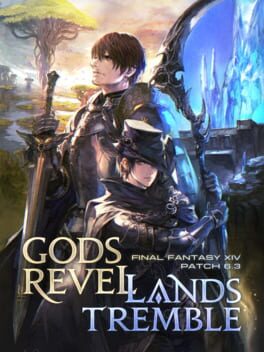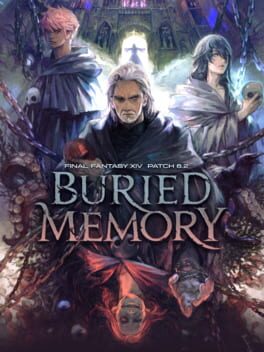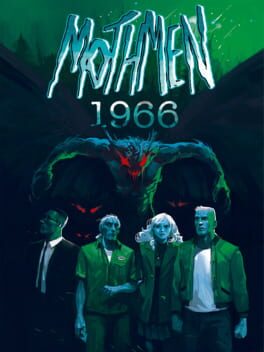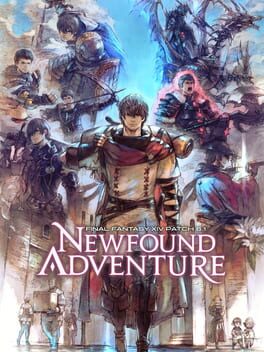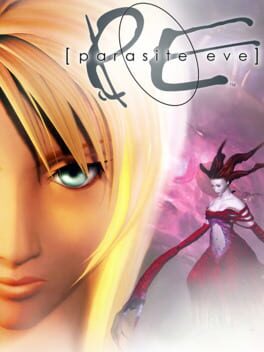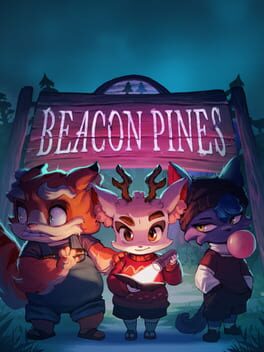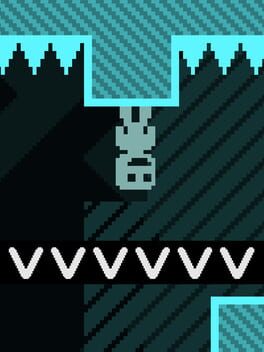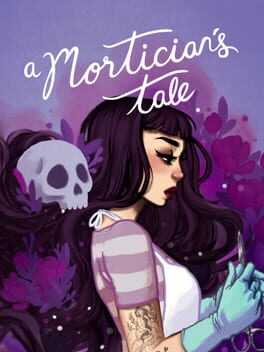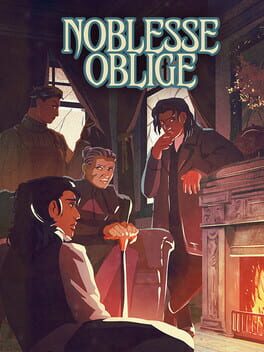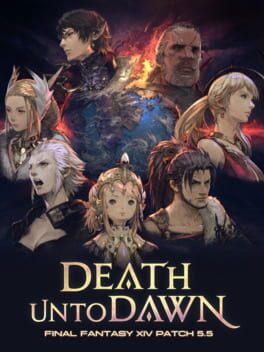guimachiavelli
This chapter reaches its very predictable ending, with everyone who's still alive redeemed, and a clear narrative thread left alone but ready to be picked back up in a future expansion. It's as fulfilling as this sort of in-between content can be, and I'm honestly overjoyed I won't have to endure the cringe of Zero tipping her hat every time people talk about feelings any longer. I'm curious about Dawntrail, but this curiosity is tempered by my feelings about gameplay.
I find myself again dreaming about this exact game, with the exact same amount of content, the same story, classes, characters, lore, and so on, but as a single player experience not beholden to the requirements of a traditional MMO.
Though I can appreciated FFXIV's gameplay in small doses, I once more reach the conclusion I just…deeply dislike it. The scripted nature of its fundamental mechanics (every class has its own rotation and deviating from it is always bad) and the very sparkly Simon Says of trials and raids, paired with the inevitable focus on optimisation that is part and parcel of MMOs, just makes for a miserable experience for me.
I find myself again dreaming about this exact game, with the exact same amount of content, the same story, classes, characters, lore, and so on, but as a single player experience not beholden to the requirements of a traditional MMO.
Though I can appreciated FFXIV's gameplay in small doses, I once more reach the conclusion I just…deeply dislike it. The scripted nature of its fundamental mechanics (every class has its own rotation and deviating from it is always bad) and the very sparkly Simon Says of trials and raids, paired with the inevitable focus on optimisation that is part and parcel of MMOs, just makes for a miserable experience for me.
At this point the story starts to go on for a bit too long. I'm happy I played this after the release of 6.5, as by itself I do think it would have been very, very disappointing. It teases all the goals of the Scions and the WoL are at reach, only to pull off a JoJo-style "you've pushed me to my limits and forced me to use my secret forbidden technique" and leave the story hanging for months.
Coincidentally, this is also the point when I start to feel burned out on the game again. Although I was initially having fun in my return to FFXIV, its gameplay once again has become aggravating. Playing it with random strangers takes its toll—though the majority of players are not overtly mean or hostile, they can still be petty and passive-aggressive. This increases the further one is close to the endgame, with this palpable vibe of "ugh, everyone should be at top of their game by now." I say this as more of an observer than a target—neither terribly bad, nor particularly good, I mostly fly under the radar.
Coincidentally, this is also the point when I start to feel burned out on the game again. Although I was initially having fun in my return to FFXIV, its gameplay once again has become aggravating. Playing it with random strangers takes its toll—though the majority of players are not overtly mean or hostile, they can still be petty and passive-aggressive. This increases the further one is close to the endgame, with this palpable vibe of "ugh, everyone should be at top of their game by now." I say this as more of an observer than a target—neither terribly bad, nor particularly good, I mostly fly under the radar.
Though I am a bit bothered by the fact FFXIV's writers seemingly cannot imagine a story that does not involve saving the universe and everything that exists within, this series of patches is still fairly entertaining. The speed with which Garlemald turned from nazi empire to "noble and proud people who still have much good in them despite racism" is a bit disconcerting, but I still enjoy learning some bits about them. There is something interesting about the position of a people deprived of magic in a world that is purely, 100% magic.
And we're of course getting a redemption arc for Golbez and the archfiends, who I'm sure will turn out to be nice, noble people willing to commit genocide.
And we're of course getting a redemption arc for Golbez and the archfiends, who I'm sure will turn out to be nice, noble people willing to commit genocide.
In a way, the story here takes an unfortunate turn. After the promise of a more lighthearted chapter, we quickly pivot to saving a destroyed world with a broken and jaded hero who will eventually rise to the occasion through the power of friendship. It's standard fare for JRPGs and not a problem in isolation, but seeing as we recently saved the universe by punching despair in the face whilst powered by that selfsame power…well, it feels a tad too soon to repeat.
There are also echoes of the "warrior of darkness" segment of post-heavensward. It sounds very unlikely we will repair the void in the interstitial space between expansions, which means this story will be resolved in such a way it provides enough material for 8.0 or 9.0.
I'm a bit bored by Barbariccia's design. Of course the female archfiend has to fight with her hair, that her world is kept together by her hair, and that one of her main concerns is, indeed, her hair.
There are also echoes of the "warrior of darkness" segment of post-heavensward. It sounds very unlikely we will repair the void in the interstitial space between expansions, which means this story will be resolved in such a way it provides enough material for 8.0 or 9.0.
I'm a bit bored by Barbariccia's design. Of course the female archfiend has to fight with her hair, that her world is kept together by her hair, and that one of her main concerns is, indeed, her hair.
2022
This review contains spoilers
I honestly wish there were more games like this. Mothmen 1966 does not try to be some sort of silly cinematic experience nor is it filled with Content™.
Instead, it is a decent narrative with an exceedingly well-executed visual language. The pixel art is marvellous and at many points visually more interesting than the majority of AAA titles. Creative constraints are set out very clearly and mostly obeyed, meaning the game is overall very focussed and 100% manages to do what it sets out to do.
I sort of disagree with others saying the second half feels less carefully constructed. IMHO, it was more a question of the story slowly building up to a climax, then resolving quickly once the suspense is over.
The main element I was unhappy with was surrounding the relationship between two of the main PCs and how it resolves. Victoria suddenly waves away all her very valid concerns about her partner and her own desires regarding her future. This is a bit iffy: the only fully conscious female character has all her worries and volition waved away in a manner that perfectly fits the desires of her male partner.
Instead, it is a decent narrative with an exceedingly well-executed visual language. The pixel art is marvellous and at many points visually more interesting than the majority of AAA titles. Creative constraints are set out very clearly and mostly obeyed, meaning the game is overall very focussed and 100% manages to do what it sets out to do.
I sort of disagree with others saying the second half feels less carefully constructed. IMHO, it was more a question of the story slowly building up to a climax, then resolving quickly once the suspense is over.
The main element I was unhappy with was surrounding the relationship between two of the main PCs and how it resolves. Victoria suddenly waves away all her very valid concerns about her partner and her own desires regarding her future. This is a bit iffy: the only fully conscious female character has all her worries and volition waved away in a manner that perfectly fits the desires of her male partner.
My relationship with this game is…complicated. After cramming the majority of 2.0 up to and including 6.0, I had grown to hate FFXIV and stuck with it mostly because I wanted to be able to say I had "finished" the game (or at least as much as one can finish a live game). Now, in retrospect, I am forced to admit my hate was in part because I was completely burned out.
Returning to it has been mostly pleasurable. Interacting with strangers is still stressful and another part of why my experience was at times miserable—trying to perform well in an unknown environment, with unknown people, in a type of game I have little experience is emotionally draining for me. Actively seeking out a group of people has helped somewhat, even if it's just to occasionally partying with a smaller pool of strangers.
In terms of the narrative, 6.1 reminded me quite strongly of 4.1, with its emphasis on the WoL trying to be a normal adventurer instead of the hallowed saviour of the universe. I particularly appreciated the spotlight shone on SE-Asia-inspired Thavnair, since it was easily lost in 6.0 between Sharlayan, Garlemald, the moon, and the chase across.
Returning to it has been mostly pleasurable. Interacting with strangers is still stressful and another part of why my experience was at times miserable—trying to perform well in an unknown environment, with unknown people, in a type of game I have little experience is emotionally draining for me. Actively seeking out a group of people has helped somewhat, even if it's just to occasionally partying with a smaller pool of strangers.
In terms of the narrative, 6.1 reminded me quite strongly of 4.1, with its emphasis on the WoL trying to be a normal adventurer instead of the hallowed saviour of the universe. I particularly appreciated the spotlight shone on SE-Asia-inspired Thavnair, since it was easily lost in 6.0 between Sharlayan, Garlemald, the moon, and the chase across.
2022
For a while, I was scared of soulslikes, put off by the much advertised difficulty, perhaps afraid to find out whether I was "gud" enough. When I finally tried Nioh, I was absolutely hooked. I moved on to Bloodborne, then Sekiro—playing them to absolute completion, trophies included. I realised the skill required was perfectly attainable by anyone with enough patience. Everything was a matter of taking one's time, studying attack patterns, and learning your tools. There is absolutely nothing else to it.
I could speak about how the open world design turns a carefully designed experience into drudgery, or how Elden Ring feels like a more complex and less interesting version of Bloodborne, or how the thin narrative layer of past From games breaks down almost completely in the spatial sprawl. But I think that would be unfair.
The fact is, I'm sure many people who play Elden Ring as their first or second soulslike will find it absolutely beautiful and entrancing. For me, though, it's just…a slog. Can I defeat this or that enemy? Of course I can, given enough time investment. That's how it worked with similar games in the past, and Elden Ring brings nothing new to the genre besides scale. But what will I get from playing it that previous From games have not yet given me? The only answer I can come up with is: nothing of note.
I could speak about how the open world design turns a carefully designed experience into drudgery, or how Elden Ring feels like a more complex and less interesting version of Bloodborne, or how the thin narrative layer of past From games breaks down almost completely in the spatial sprawl. But I think that would be unfair.
The fact is, I'm sure many people who play Elden Ring as their first or second soulslike will find it absolutely beautiful and entrancing. For me, though, it's just…a slog. Can I defeat this or that enemy? Of course I can, given enough time investment. That's how it worked with similar games in the past, and Elden Ring brings nothing new to the genre besides scale. But what will I get from playing it that previous From games have not yet given me? The only answer I can come up with is: nothing of note.
1998
I can imagine a version of this game in which there is no dialogue, or whatever dialogue there is is in a fake, invented language no one understands. Parasite Eve would have been so much better like that.
Gameplay holds up quite well after more than 20 years since the game’s first release: for the most part combat is hard without being overwhelming (a few of the final bosses excluded) as long as the player is not spreading weapon upgrades too thinly.
The setting and overall atmosphere are brilliant. There’s a great balance between freaky body horror, vaguely science-y nods, and a sort of 1990s noir vibe. Mutated animals are interesting in how outlandish they are (rats who generate fire from their tails? why not?) Exploring the city feels great despite all the random encounters, and certain visual choices are stylistically great. One of my favourites is the blinking red LED in landline phones indicating save points—it adds just the right amount of life to the eerily empty locations you visit throughout the game. Despite its age, visuals are evocative and ooze style, though it’s interesting how the regular game itself is nowadays more visually interesting than the fancy pre-rendered cutscenes.
All that atmosphere brutally dissipates the moment any character tries to explain the game’s story. I won’t waste time on it. Although it’s possible to appreciate it to some level because of how truly bad it is, it’s sort of a waste with how cool Aya and Eve look (the rest of the cast could disappear, honestly).
Gameplay holds up quite well after more than 20 years since the game’s first release: for the most part combat is hard without being overwhelming (a few of the final bosses excluded) as long as the player is not spreading weapon upgrades too thinly.
The setting and overall atmosphere are brilliant. There’s a great balance between freaky body horror, vaguely science-y nods, and a sort of 1990s noir vibe. Mutated animals are interesting in how outlandish they are (rats who generate fire from their tails? why not?) Exploring the city feels great despite all the random encounters, and certain visual choices are stylistically great. One of my favourites is the blinking red LED in landline phones indicating save points—it adds just the right amount of life to the eerily empty locations you visit throughout the game. Despite its age, visuals are evocative and ooze style, though it’s interesting how the regular game itself is nowadays more visually interesting than the fancy pre-rendered cutscenes.
All that atmosphere brutally dissipates the moment any character tries to explain the game’s story. I won’t waste time on it. Although it’s possible to appreciate it to some level because of how truly bad it is, it’s sort of a waste with how cool Aya and Eve look (the rest of the cast could disappear, honestly).
In general I felt Yakuza: Like a Dragon was consistently funny, though not always fun.
The first handful of chapters is so wonderful in its cross of absolutely menial stuff (a whole segment dedicated to recycling, another to finding a job, looking for coins under vending machines) and adorably wacky (Ichiban hallucinating enemies and special effects, Nanba's special pigeon attack). Combat follows the same logic. There's just this chaotic energy permeating the whole thing which makes it very difficult to be strategic, like the way each AoE effect has its own peculiar and unpredictable logic. The game does not take itself seriously in the most satisfying of ways—even when things start to get serious, there's still this joyfulness to it that is refreshing in a AAA gaming scene dominated by an attempt at portraying serious people doing serious things.
The second half of the game is a bit more confusing and seems less sure about how to move forward. This is particularly visible in the disparity between the first four team members (a cop who was dishonourably discharged, a homeless man, a barmaid) and the last couple of arrivals (such as a hitman very much still in his job), or in how people start to actually die. The zany, wacky spirit remains alive for the most part, probably thanks to Ichiban being such a silly and charismatic protagonist, mixed with the usual melodrama common to the Yakuza series.
Finally, a lot of mixed feelings regarding gender representation. There are about five named female characters in the game, out of which two have any sort of agency. Jobs are strictly gender-specific in weird ways. This is a game where a cook can beat down a construction crane with a wooden spatula, but a male Idol or a woman breakdancing are somehow too outrageous. The Night Queen job (a dominatrix) also evokes uncomfortable feelings—nothing wrong with kink and with women expressing their sexuality outside of standard social boundaries, but the fact men do not get their own highly-sexualised job choice is telling. Mini-games are also an occasional victim here, as Eri is presented as infinitely more qualified for the CEO role, but somehow falters without a nice strong man making all decisions.
The first handful of chapters is so wonderful in its cross of absolutely menial stuff (a whole segment dedicated to recycling, another to finding a job, looking for coins under vending machines) and adorably wacky (Ichiban hallucinating enemies and special effects, Nanba's special pigeon attack). Combat follows the same logic. There's just this chaotic energy permeating the whole thing which makes it very difficult to be strategic, like the way each AoE effect has its own peculiar and unpredictable logic. The game does not take itself seriously in the most satisfying of ways—even when things start to get serious, there's still this joyfulness to it that is refreshing in a AAA gaming scene dominated by an attempt at portraying serious people doing serious things.
The second half of the game is a bit more confusing and seems less sure about how to move forward. This is particularly visible in the disparity between the first four team members (a cop who was dishonourably discharged, a homeless man, a barmaid) and the last couple of arrivals (such as a hitman very much still in his job), or in how people start to actually die. The zany, wacky spirit remains alive for the most part, probably thanks to Ichiban being such a silly and charismatic protagonist, mixed with the usual melodrama common to the Yakuza series.
Finally, a lot of mixed feelings regarding gender representation. There are about five named female characters in the game, out of which two have any sort of agency. Jobs are strictly gender-specific in weird ways. This is a game where a cook can beat down a construction crane with a wooden spatula, but a male Idol or a woman breakdancing are somehow too outrageous. The Night Queen job (a dominatrix) also evokes uncomfortable feelings—nothing wrong with kink and with women expressing their sexuality outside of standard social boundaries, but the fact men do not get their own highly-sexualised job choice is telling. Mini-games are also an occasional victim here, as Eri is presented as infinitely more qualified for the CEO role, but somehow falters without a nice strong man making all decisions.
2022
The way the narrative unfolds is very interesting. Though it might look like the game allows the player to choose how the story will develop, these choices are by and large oblique ways of delivering information piecemeal in a climactic manner while keeping the final, successful branch from breaking under its own weight. The end result is quite satisfying, creating this sort of spiral storytelling structure where we get progressively closer to the "truth".
2010
2017
2022
A decent enough story, fairly entertaining in the way it evokes a supernatural horror vibe even as everything turned out to be fairly mundane.
The multiple romance options were accommodating to a fault, as I found myself in a polyamorous relationship pretty much without trying. This was a bit jarring as I felt the initial monogamous romance grew up rather organically and required some effort, whereas adding a third person was done after two scenes.
The multiple romance options were accommodating to a fault, as I found myself in a polyamorous relationship pretty much without trying. This was a bit jarring as I felt the initial monogamous romance grew up rather organically and required some effort, whereas adding a third person was done after two scenes.
This review contains spoilers
Endwalker had the impossible task of finishing a decade-long story. There was simply no way this was going to be a perfect and elegant ending—too many threads to bring together, too much lore to handle, too many accumulated issues over the course of these 10 years. It is a wonder that it manages to finish everything it set out to do.
In short, 6.0 encapsulates everything I love and hate about this game. It is absolutely ridiculous in the best and worst ways—we punch despair to death on a magic platform floating the back of our archenemy who turned into a dragon god (again!), we travel to the past, we see plot-relevant people returning from death through the power of deus ex machina, we kill and dethrone multiple supreme gods of creation, and we share wholesome moments with bunnies and friends.
I will skip over gameplay. MMOs are not for me. I find them tedious, messy, and overly complex. This is not an absolute judgement, just a matter of personal preference. Endwalker did not offer much really new here except a couple of new "stealth" sequences which are thankfully short.
The narrative has its very low points. The moments after a grand revelation, in which we are mired with an absolute overabundance of lighthearted content are one example. Don't get me wrong, the Loporrits are adorable and I love them, but both their questlines were painful filler. Endwalker also fumbles—once again—when trying to address geopolitics and how to handle fascists, though I did appreciate the WoL did not fix 60 years of eugenics and imperialism in 5 days through the power of friendship and rainbows. Zenos and Fandaniel barely deserve a mention, tired and mediocre discount-bin villains as they were—at least they mostly disappear after the first third of the game. I feel almost dirty dealing with them after fighting against Emet-Selch.
The character-focussed sections are, as always, the shining beacons of FFXIV, the reason for which I play this game. Nothing that hits as hard as Shadowbringers, but that's at least in part because Endwalker simply had a lot to do, and needed to do it in the most brazenly melodramatic manner. The special moments we shared with our companions were always preoccupied with signalling a major chapter of their story had reached an end, and that this end was supposed to be a good one. When a secondary protagonist dies without 25 minutes of mourning cutscenes and is then quickly followed by another, you just know their arses are 100% safe. This rather dampens the emotional impact of the whole thing. Meeting the Amaurotines, on the other hand, is lovely and, a couple of suspiciously retcon-y moments aside, really expands our understanding of these people were and why they did the things they did. Except for Hermes, whose main character trait is "misguided attempts at dealing with personal issues."
My biggest disappointment was the amount of compromises when it came to previously fundamental aspects of the world. Our planet/star is suddenly no longer Hydaelyn; the mothercrystal is not some fundamental pillar of existence, just rocket fuel; primals are trash mobs; summoning no longer tempers anyone.
But, with everything said and done, I'm happy I played this game, I'm happy I experienced this story, and I'm happy it's done. I will forever treasure the characters, the story, the gargantuan scope of the narrative, even as I will probably never touch a multiplayer game ever again.
In short, 6.0 encapsulates everything I love and hate about this game. It is absolutely ridiculous in the best and worst ways—we punch despair to death on a magic platform floating the back of our archenemy who turned into a dragon god (again!), we travel to the past, we see plot-relevant people returning from death through the power of deus ex machina, we kill and dethrone multiple supreme gods of creation, and we share wholesome moments with bunnies and friends.
I will skip over gameplay. MMOs are not for me. I find them tedious, messy, and overly complex. This is not an absolute judgement, just a matter of personal preference. Endwalker did not offer much really new here except a couple of new "stealth" sequences which are thankfully short.
The narrative has its very low points. The moments after a grand revelation, in which we are mired with an absolute overabundance of lighthearted content are one example. Don't get me wrong, the Loporrits are adorable and I love them, but both their questlines were painful filler. Endwalker also fumbles—once again—when trying to address geopolitics and how to handle fascists, though I did appreciate the WoL did not fix 60 years of eugenics and imperialism in 5 days through the power of friendship and rainbows. Zenos and Fandaniel barely deserve a mention, tired and mediocre discount-bin villains as they were—at least they mostly disappear after the first third of the game. I feel almost dirty dealing with them after fighting against Emet-Selch.
The character-focussed sections are, as always, the shining beacons of FFXIV, the reason for which I play this game. Nothing that hits as hard as Shadowbringers, but that's at least in part because Endwalker simply had a lot to do, and needed to do it in the most brazenly melodramatic manner. The special moments we shared with our companions were always preoccupied with signalling a major chapter of their story had reached an end, and that this end was supposed to be a good one. When a secondary protagonist dies without 25 minutes of mourning cutscenes and is then quickly followed by another, you just know their arses are 100% safe. This rather dampens the emotional impact of the whole thing. Meeting the Amaurotines, on the other hand, is lovely and, a couple of suspiciously retcon-y moments aside, really expands our understanding of these people were and why they did the things they did. Except for Hermes, whose main character trait is "misguided attempts at dealing with personal issues."
My biggest disappointment was the amount of compromises when it came to previously fundamental aspects of the world. Our planet/star is suddenly no longer Hydaelyn; the mothercrystal is not some fundamental pillar of existence, just rocket fuel; primals are trash mobs; summoning no longer tempers anyone.
But, with everything said and done, I'm happy I played this game, I'm happy I experienced this story, and I'm happy it's done. I will forever treasure the characters, the story, the gargantuan scope of the narrative, even as I will probably never touch a multiplayer game ever again.
This patch gives me the feeling I won't enjoy Endwalker that much. FFXIV villains work best when they have some degree of grey to them: from the first time Elidibus came into play he was interesting because he seemed mostly reasonable; Emet-Selch was brilliant because he was not laughing maniacally sitting on his throne made out of dead babies. Zenos' "hunt" is wholly unconvincing and Fandaniel's evil psychopathic jester shtick is frankly exhausting and overplayed.
The towers are sort of visually interesting in their fleshy design, but the fact they spit out discount bin primals is narratively difficult. They go from world-changing creatures to…trash mobs, basically—the supposedly giga-powerful Lunar Bahamut barely qualifies as a dungeon boss now. After years of worldbuilding around the awesome power of primals, this leaves a vacuum that will be very hard to fill.
The towers are sort of visually interesting in their fleshy design, but the fact they spit out discount bin primals is narratively difficult. They go from world-changing creatures to…trash mobs, basically—the supposedly giga-powerful Lunar Bahamut barely qualifies as a dungeon boss now. After years of worldbuilding around the awesome power of primals, this leaves a vacuum that will be very hard to fill.
